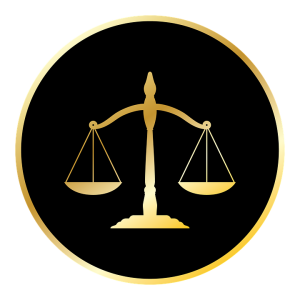When I was a teenager and thought life was fairly simple, I believed that retirement would be a breeze – life and its purposes would be clear, decisions would be easy to make and all the tough parts, like work, would be in the past. “Hey, I can do whatever I want when I want to!” Then I retired and I discovered how wrong I was! Being retired is far from trouble-free. In fact, some life issues among my friends and those I know occur so frequently that it is relatively easy to list the most common and offer advice so those approaching or early in their retirement can start preparing.

Below are some of the most common issues arising among seniors and retireees and a few ideas to either avoid them or lessen their impact. This is not intended to be a comprehensive or all-inclusive study, but instead, this article is intended to introduce you to concerns and risks that you may face.
1. Death and taxes
The old joke (which has at least a small amount of truth to it) is that death and taxes are the only certainties in life. In reality, God is another truth. While neither death nor taxes can be avoided entirely, there is a lot that can and should be done about each of those. Let’s start with the easy one, taxes.
Taxes
Rather than becoming simpler, your tax situation may actually become more difficult and require more attention when you retire. Most people had taxes withheld in either adequate or close to adequate amounts during their work years. However, that changes for many when they retire. Many retirees with income from retirement accounts will have to file quarterly estimated tax documents and make a quarterly tax payment to the IRS. They also will start drawing from their investment accounts at which time long or short-term capital gains start happening as taxes eat away at the money retirees worked so hard to save and invest.
Required Minimum Distributions (RMDs) began at age 70 ½ for most qualified investment accounts (see below for more on RMDs). The end result for many is that tax time becomes more, not less, complex as they advance in retirement.
Death
There is no way to avoid our earthly death but there are steps to take to prepare for your family and loved ones as well as for yourself.
The steps include both secular and the spiritual preparations. Since eternity is a lot longer than the brief time God gives us on this earth, it is important for people to take their spiritual and eternal futures seriously and address questions of faith without delay.
God chose to create us in an act of amazing creative generosity. John 1:1-3. He then gave us life, gifts and His grace as well as an opportunity to be and stay in relationship with Him through eternity through His Son, Jesus. John 3:16. He also has given us a guidebook for life, His Word, and opportunities to know Him better through study, meditation and worship. 2 Timothy 3:16.
2 Timothy 3:16
16 All Scripture is God-breathed and is useful for teaching, rebuking, correcting and training in righteousness …
Start your journey into eternity now by coming to know Him. A great place to start is Idlewild Baptist Church in Lutz, Florida. There is no better gift you can give your family and loved ones than for them to know you will be with them in heaven.
A second gift you can give them is an estate plan so your heart-felt wishes can be carried out for what remains when you do pass away. A good estate plan will reduce the pressure on your family at a time when they will sincerely appreciate what you have done to ease some of the loss. One solid goal for estate planning is to eliminate probate altogether or dramatically reduce probate expenses. See What Legacy Will You Give for additional ideas. Call us at The Idlewild Foundation for even more ideas.
A third gift is for you to make your final wishes known and clear through pre-death planning. A good guideline for steps you can take can be found at Essential Documents – End of Life Checklist. Help your family by making looking for personal papers, bank account records, computer passwords, and other details unnecessary. These are details that may be hard for family members to find, especially as they are grieving. Help your family further by being organized and save them painful hours of going through papers and files.
2. The surprise delivered by RMDs
If you have a IRA, SEP IRA, Simple IRA, 403(b), 457(b), profit sharing plans, or qualified retirement plan (this does not apply to Roth IRAs), reaching age 70 ½ caused you to enter into a new world of forced income. It used to be that at age 70 ½ RMDs were mandatory. Several changes in federal law since then have altered that age for some – check with your financial adviser or give us a call and we will help you figure out when RMDs begin for you. An IRS FAQ on RMDs can be reached by clicking here. That site has multiple links including links to worksheets for calculating your RMDs.
This is extremely important since the IRS imposes severe penalties for a person’s failure to take the RMD. The penalty you may have to pay on the amount not distributed as required can be a 50% excise tax.
It really is not that difficult for many people who are dependent upon their retirement accounts by age 70 because they will likely be drawing out enough, but the trap lies in wait for those with multiple retirement accounts, IRAs, etc. Your accountant, financial adviser or someone willing to study the requirements of the tax code can and should set up a schedule for withdrawing funds so that you do not miss any account or fail to withdraw an adequate amount from each.
3. The changing investment world
When you retire, your income and financial sources change; maybe they become simpler, but maybe not. One income source is Social Security, starting typically at anywhere from 62 to 70. From the positive side, you can’t take early distributions and Social Security is “secure.” From the negative side Social Security was probably the worst investment you made during your working life. The investment return on what you paid in to Social Security over your work life was not good and you paid in with after tax dollars and you are taxed on your full benefit, not just the minuscule “gain” on the amounts you paid in, which is basically double taxation.
You also face decisions about which retirement funds to use first as well as how much to pull out each year. On the question of which retirement funds to access first, you will need current advice from a professional. The tax laws, especially now, are rapidly changing and good advice one year may be bad advice the next. Additionally, what is best is extremely personal and highly dependent upon your unique circumstances, investments, tax situation and your personal needs. For some guidance on the amount you may be able to afford to take out, see The Four Percent Rule for Retirement on how much you may want to take in distributions and savings in any given year.
You may also come face-to-face with additional tough decisions about handling income above your immediate retirement needs (re-invest and how?), handling of bonds, CDs or investments that have matured, or any of the inevitable financial decisions that arise over time. If decisions like these become burdensome, you should consult with a trusted family member of perhaps hire a financial adviser to manage your assets for you.
4. Keeping up with Medicare
What should be one of the easiest responsibilities in seniority and retirement sometimes gets very difficult. Keeping up with changes in Medicare and in any advantage plan or supplement plan you have can be a real hassle. If you do not have an advantage plan or a supplement plan and you are receiving Medicare benefits, get one now! There are plans available at no extra cost that do provide additional benefits not available with Medicare by itself. So, even if you cannot afford to pay more, meet with an independent adviser and seriously consider signing up for at least a minimal advantage or supplement plan.
An independent adviser, not one selling just a particular company’s plan, is highly advisable. These are complex and confusing products. An experienced adviser can help guide you to what plan might be best for you. There can never be certainty because the future of your health and medical needs can never be clearly predicted, but there is a wide variety of plans available, some which replace Medicare (Advantage Plans) and others which add to Medicare benefits (Medigap or Supplements). Some may cost in the hundreds of dollars a month, but if medical needs are high, such a plan might be the best choice.
You will also have to decide at age 66 about Medicare Part D, drug coverage.

The premium is low, and if you are not taking any prescription medications, it may appear to be a needless expense. However, if you do not start with Part D when you sign up for Medicare, adding it later will result in higher costs as there is a built-in penalty for delaying Part D coverage. Your future prescription drug requirements can’t be known now, so unless the Part D premium is unmanageable in your budget, getting Part D coverage is probably a good idea.
Then, annually you will receive information in the form of a thick booklet with information on the changes in coverage and benefits from the previous year. Most will not impact you financially or otherwise, but it is wise to try to stay abreast of the significant changed each year.
5. Trouble following your finances
As you continue to age, the issue of your finances can become overwhelming. It isn’t necessarily that paying the bills is more difficult or involved, it may just be the almost inevitable slowing of your capacity to understand and focus.
As this time approaches, there are multiple diverse issues that are better faced before the problems multiply. They include:
a. Home maintenance and upkeep (as well as safety)
Taking care of what used to be simple tasks can become major work projects, even dangerous ones. The risk of seniors injured falling from ladders and even step ladders is high. Cleaning fans, changing light bulbs in ceiling lights, reaching dishes, pots and pans in high cabinets and more can and often do become major tasks.
Line up help, advisers and potential workers before they are necessary. Start with a few modifications to your home. See Aging in Place and Making Your Home Senior-Friendly for ideas to prolong your ability to remain safely in your home. Locate a handyman or a skilled relative, friend or church member who will help. But here are two key points, first, always have a written contract telling you exactly what work is going to be done and exactly what the cost will be – EXCACTLY. Second, be slow to sign any contract, especially one with a high dollar figure. Seek advice. If you don’t know who to call, call us and we will help. Next in time may come independent living in a Continuing Care Retirement Community (CCRC). You may start in independent living, more to assisted living when some help is needed, all in the same facility or community.
b. Paying the bills
Studies suggest that the average person’s financial and mathematical abilities increase until the mid-50’s and then start declining. Of course, the starting point and rate of decline may be dramatically affected by medical issues, but it is important for seniors to be aware of this and take steps to insulate themselves from the associated risks.
The best ideas here are simple. First, simplify your finances. Second, develop a Plan B. Ideally, the simplification starts around retirement age.
The first step is to organize, simplify and, to the extent possible, automate. Know and list your regular bills as monthly, quarterly and annual. On that list, show when they come in, and calendar them on a paper or preferably an electronic calendar so they won’t be missed. The initial effort takes time, but after that, watching your monthly finances becomes easier.
If your incoming funds such as Social Security, retirement plan distributions and annuity payments can be electronically deposited and the monthly income is sufficient, then set your regular bills to be automatically paid. Many companies such as mortgage companies, power companies and the usual utilities provide that service. That creates fewer opportunities for mistakes.
Developing a Plan B is more difficult. Difficult does not mean avoid or delay it, it just means it is emotionally harder and takes more thought and time. The emotional difficulty arises because managing money is one of the ways people maintain their independence and control over their own lives. It is difficult at best for seniors as they struggle with the loss of independence.
But it is inevitably coming for those who live long enough. Research shows that even seniors who don’t develop dementia often experience meaningful declines in financial capabilities. Seniors don’t want to admit the difficulties and most family members are hesitant to step into such emotionally dangerous territory. But do the right thing. If you are the senior, help your family members by starting this process yourself.
Meet with a close friend or financial adviser, discuss it with that person and take the following steps:
Start with a Durable Power of Attorney. This is a document that authorizes another to manage your finances even if you are incapacitated and mentally incapable of managing your affairs yourself. The word “durable” simply means that it remains in effect even if you become mentally incapacitated. A nondurable power of attorney is good for periods of hospitalization or travel, can be temporary and limited in scope. A durable power of attorney has to be done in advance because it obviously can’t be done when you are incapacitated.

You can and should authorize your lawyer and financial adviser, if you have them, to contact a specific and trusted relative or friend if he or she suspects you are developing diminished financial abilities. Ask for their help; most will accept that responsibility.
There are other important documents that may help. See Documents (And Protection) Everyone At Every Age Should Have for important information on Living Wills, Healthcare Surrogate Designations and other important life documents.
You should also meet and discuss with that trusted friend or relative and let them know they might get a call from a professional. Give them sufficient information that they can help without consuming days of their time figuring out where to start. Much of the information you should gather and memorialize is nicely categorized in Essential Documents – End of Life Checklist.
If you are unable to find a friend or professional you trust or who is willing to help, you may want to consider a guardianship of your property established through the court system. Guardianship has the disadvantage of having a cost and it is more time-consuming. On the other hand, it has the advantage that the guardian’s services are overseen and monitored by the Court, making your finances somewhat safer.
c. An increasing risk of fraud and elder abuse, especially financial fraud
At the same time as financial abilities begin to wane, so does caution. Elderly people are often targeted for fraud and are targeted for new and creative pitches for their money. Examples of seniors receiving fake charitable solicitations, being cheated by unscrupulous (and often unlicensed) contractors, abandoned or mistreated by family or caregivers, or being the victims of theft or attack are readily available in the news virtually every day. For more details, see Financial Abuse of the Elderly. Florida law provides substantial protection (as do most states) of the elderly who have begun to suffer impairments of aging, persons defined as vulnerable adults. Hillsborough County, Florida has a program through its Elder Justice Center to help persons sixty (60) years or older. Additionally, the State of Florida has the Florida Department of Elder Affairs with available programs and resources for the seniors.
Many believe they will never need help managing their finances unless they develop Alzheimer’s or dementia. However, the normal aging process can attack short-term and a person’s ability to process new information well.
For seniors and for their family, awareness of decline is important. Watch for such warning signs of financial decline as the following which are published by the National Endowment for Financial Education:
• Taking longer to complete everyday financial tasks
• Reduced attention to details in financial documents
• Decline in everyday math skills
• Decreased understanding of financial concepts
• Difficulty identifying risks in a financial opportunity
A senior’s ability to handle finances will decline at some point in time. Start preparing before, not after that time arrives.

About the author:

John Campbell has retired from a 40-year legal practice as a trial attorney in Tampa. He has served in multiple volunteer roles at Idlewild Baptist Church in Lutz, Florida, where he met Jesus. He began serving as the Executive Director of the Idlewild Foundation in 2016. He has been married to the love of his life, Mona Puckett Campbell, since 1972.
